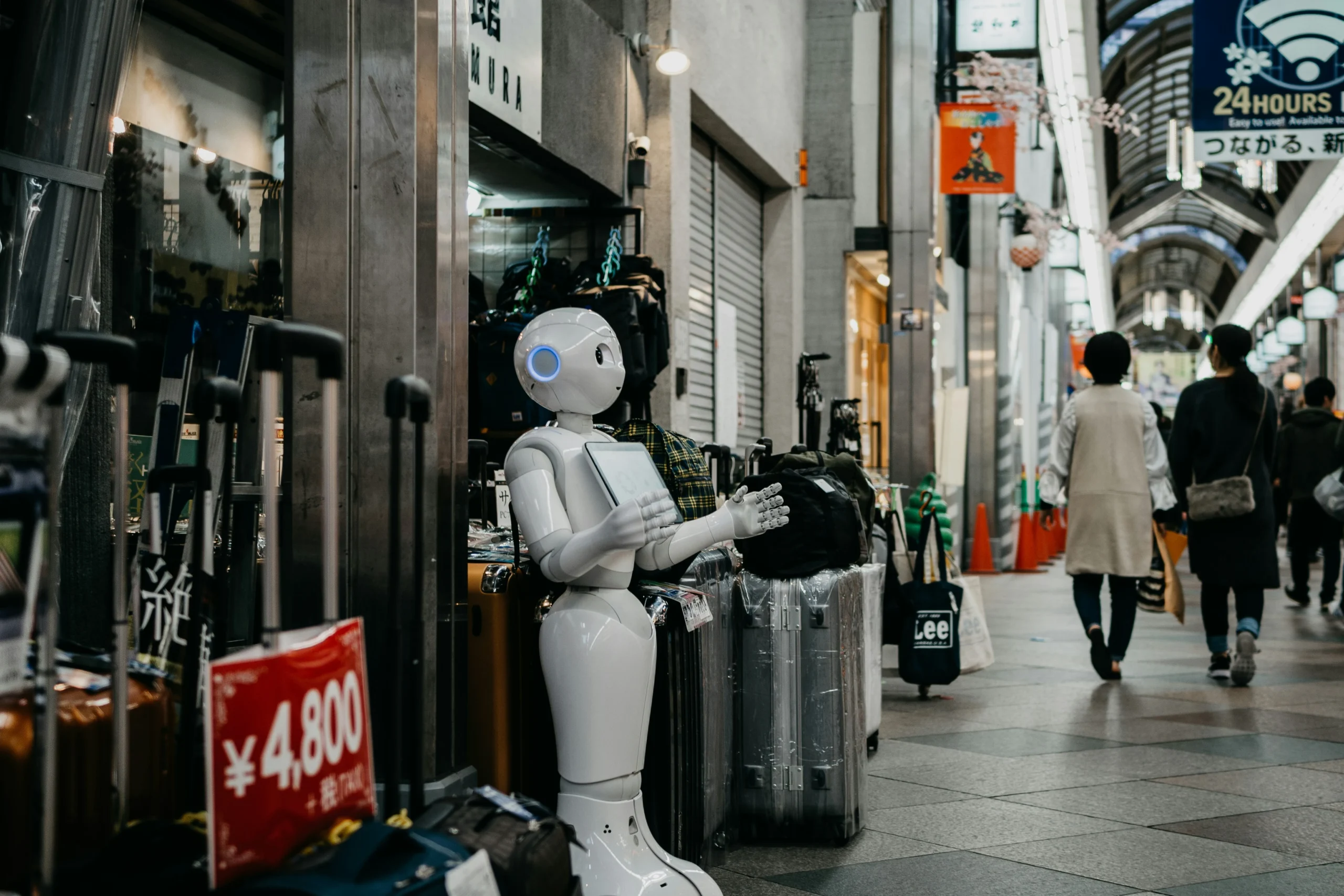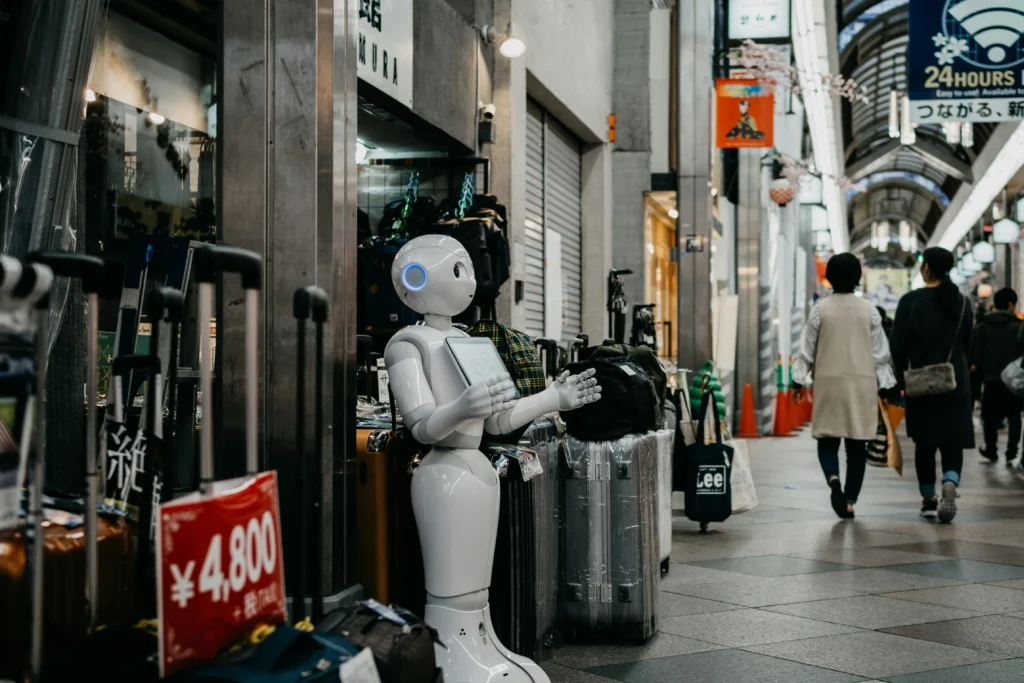The Evolution of AI: Shaping the Future of Humanity

The evolution of AI has reshaped the world, bringing innovations that were once only imaginable in science fiction. As AI technology continues to advance, its impact on industries, society, and daily life is becoming more profound. From machine learning and automation to ethical considerations, AI is not just transforming technology—it is shaping the future of humanity.

The Journey of AI: From Inception to Revolution
The concept of artificial intelligence dates back to ancient myths and the early days of computing. However, the real breakthrough came in the 20th century when scientists and engineers began creating intelligent machines capable of learning and decision-making.
Early AI Developments
In the 1950s, researchers like Alan Turing laid the groundwork for AI, introducing the Turing Test to assess machine intelligence. The 1980s and 1990s saw the rise of expert systems and neural networks, enabling computers to mimic human-like reasoning and problem-solving.
The Role of Artificial Intelligence in Business Innovation
The AI Boom: Machine Learning & Deep Learning
With the rise of big data and increased computing power, AI took a quantum leap in the 21st century. Machine learning and deep learning, powered by neural networks, have allowed AI to make autonomous decisions, understand complex patterns, and improve itself over time.
How AI is Transforming Industries
The impact of AI is being felt across multiple sectors, revolutionizing how businesses and services operate.
AI in Healthcare
AI-driven diagnostics, robotic surgeries, and predictive analytics are helping doctors provide better patient care. AI algorithms can detect diseases like cancer at an early stage, increasing survival rates and improving treatment plans.
AI in Business & Finance
AI-powered chatbots, automated trading, and fraud detection systems have enhanced efficiency and security in business and finance. Companies are using AI to streamline operations, analyze consumer behavior, and optimize marketing strategies.
AI in Education
With adaptive learning platforms, AI personalizes education by analyzing student performance and offering customized lessons. AI tutors and virtual assistants help learners access information instantly, making education more accessible and effective.
AI in Transportation & Autonomous Vehicles
Self-driving cars and AI-driven traffic management systems are reducing accidents and improving transportation efficiency. Companies like Tesla and Waymo are at the forefront of autonomous vehicle technology.
AI & Ethics: Challenges and Considerations
Despite its benefits, AI poses ethical and social concerns. Some of the key challenges include:
- Job Displacement: Automation may replace jobs, requiring workforce reskilling and adaptation.
- Bias & Discrimination: AI algorithms can inherit biases, leading to unfair decision-making.
- Privacy & Security: AI’s ability to collect and analyze vast amounts of data raises privacy concerns.
- Autonomous Weapons: The development of AI-driven weapons raises moral and ethical debates.
To address these challenges, governments and organizations must establish AI regulations and ethical guidelines that prioritize human welfare.
The Future of AI: What Lies Ahead?
AI is expected to continue evolving, leading to advancements in:
- Artificial General Intelligence (AGI): AI that can perform any intellectual task a human can do.
- AI & Human Collaboration: Augmenting human capabilities rather than replacing jobs.
- AI in Space Exploration: AI-driven robots aiding space missions and planetary exploration.
- Sustainable AI Solutions: AI contributing to climate change solutions and green technology.




Enlightening study! The way AI KungFu improves video creation is impressive.
🎪 A carnival of concepts! Sprunki creates that same sense of wonder.
Groundbreaking analysis! T-Rex Game perfectly balances skill and accessibility.
Exceptional approach! AI Tools List showcases advancement.
Groundbreaking perspective! Dinosaur Game perfectly balances challenge and accessibility.
Your writing creates pure magic! Experience magic with Sprunki.
Thoughtful analysis! If you enjoy creative experiences, check out ESprunki Game – it’s a whole new way to make music.
Incredible breakthrough! AI Tools Directory streamlines business intelligence.
For Incredibox veterans seeking new challenges: Sprunki Game introduces layered complexity with its character interaction system and hidden audio layers.
Engaging perspective! Have you tried AI-assisted composition in Sprunki Game? It suggests innovative sound combinations.
Incredible analysis! The Sprunki Games platform transforms sound. Sprunki Games offers unprecedented freedom in creativity. The depth that Sprunki Games brings to sound mixing is extraordinary.
Impressive observations! The AI Tools List demonstrates how AI enhances trend prediction too. The AI Tools List features options for seasonal adaptation.